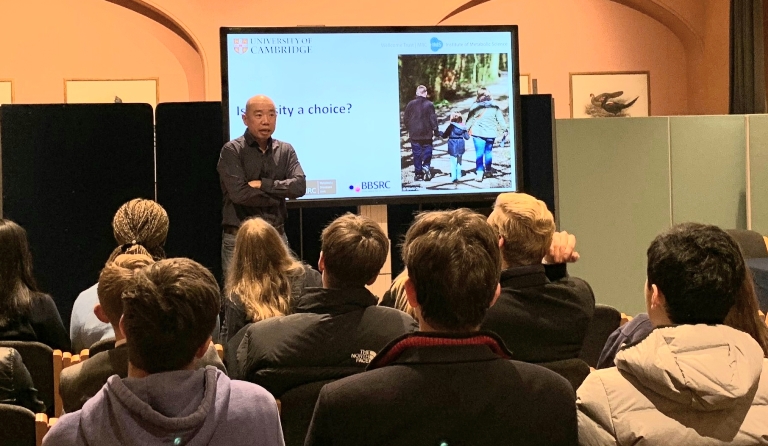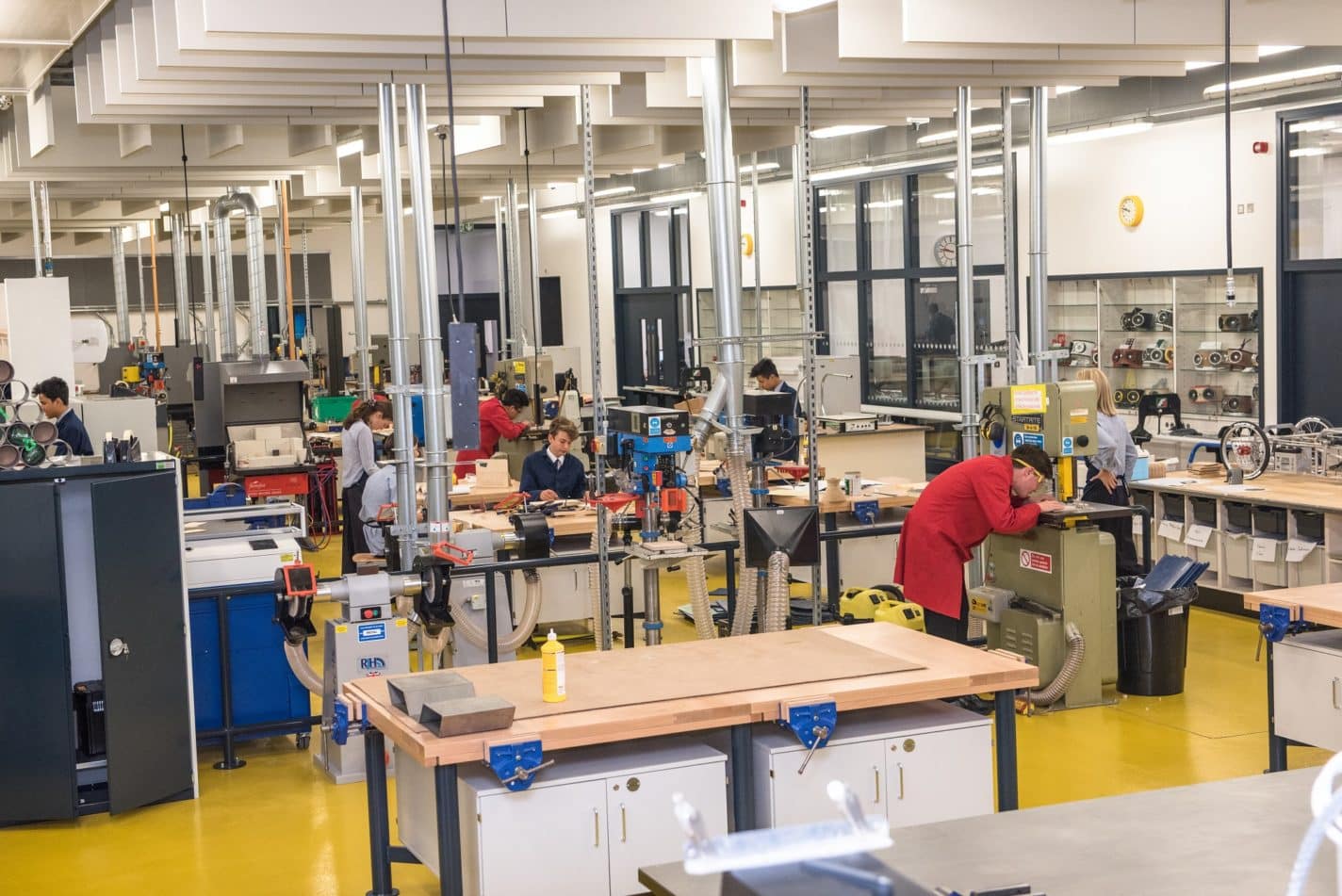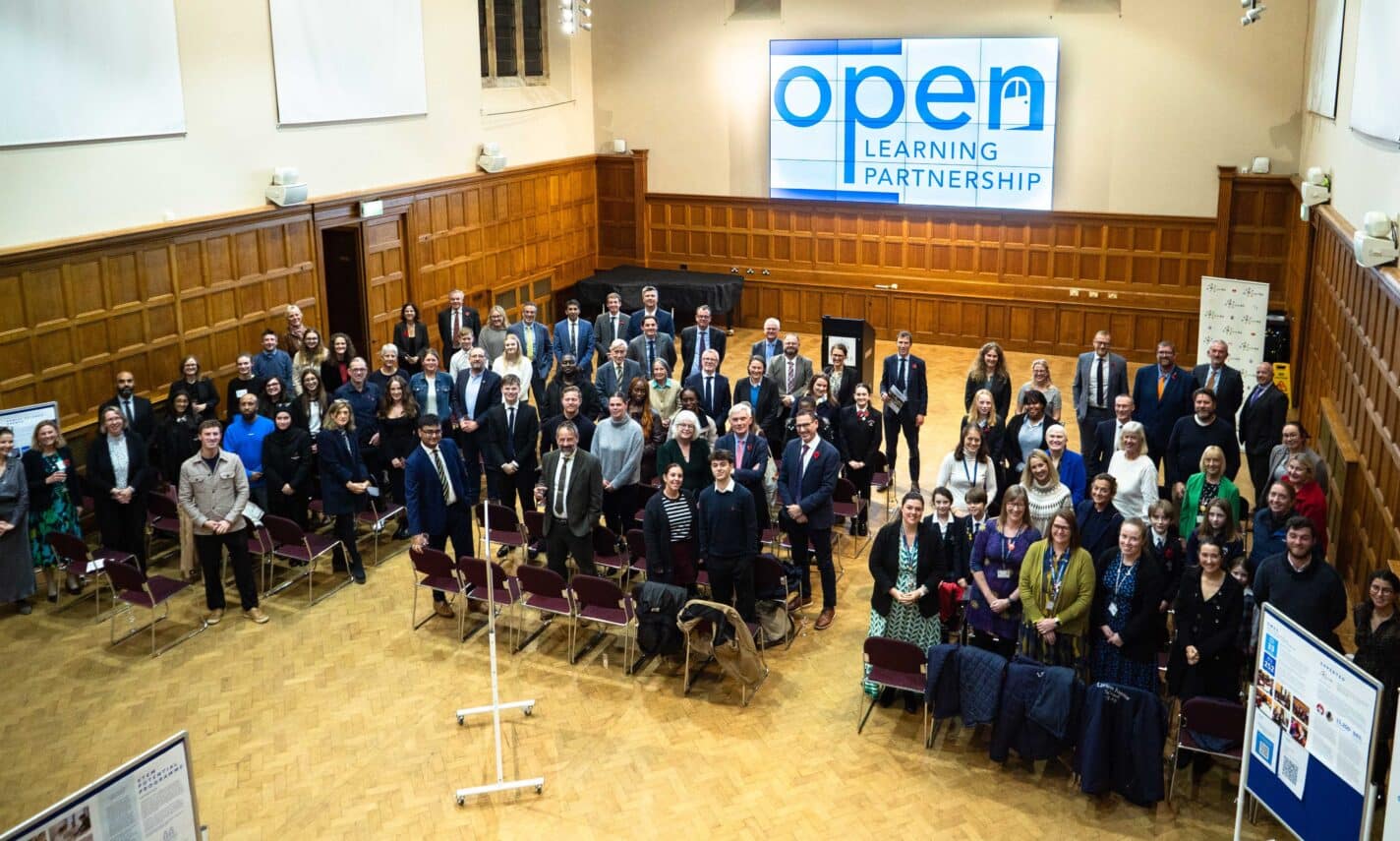The biological answer is “no”. Dr Giles Yeo, a geneticist, research associate and lecturer at the University of Cambridge, currently studying how our brains control food intake and body weight, came to Oundle to reveal this to us.

He explained how there are around 300 genes that affect our body shape and BMI, so having certain copies or deficiencies can lead to an increased chance of obesity in humans. For example, having the leptin gene deficiency causes hyperphagia leading to very large body size. We also learned that our ‘dessert stomach’ is likely to be a result of evolutionary behaviour because our brain craves calorie dense foods after a meal in fear that we may not eat again for a while, although in the modern era, this is usually not the case. He also talked about some of the controversies that his work stirs up.
Dr Yeo was a dynamic speaker who made the talk enjoyable for all. At the end, he even invited pupils with Labradors to volunteer their dogs to take part in a nutrigenomic study currently taking place at Cambridge University.
Poppy Buckley (Sn)




